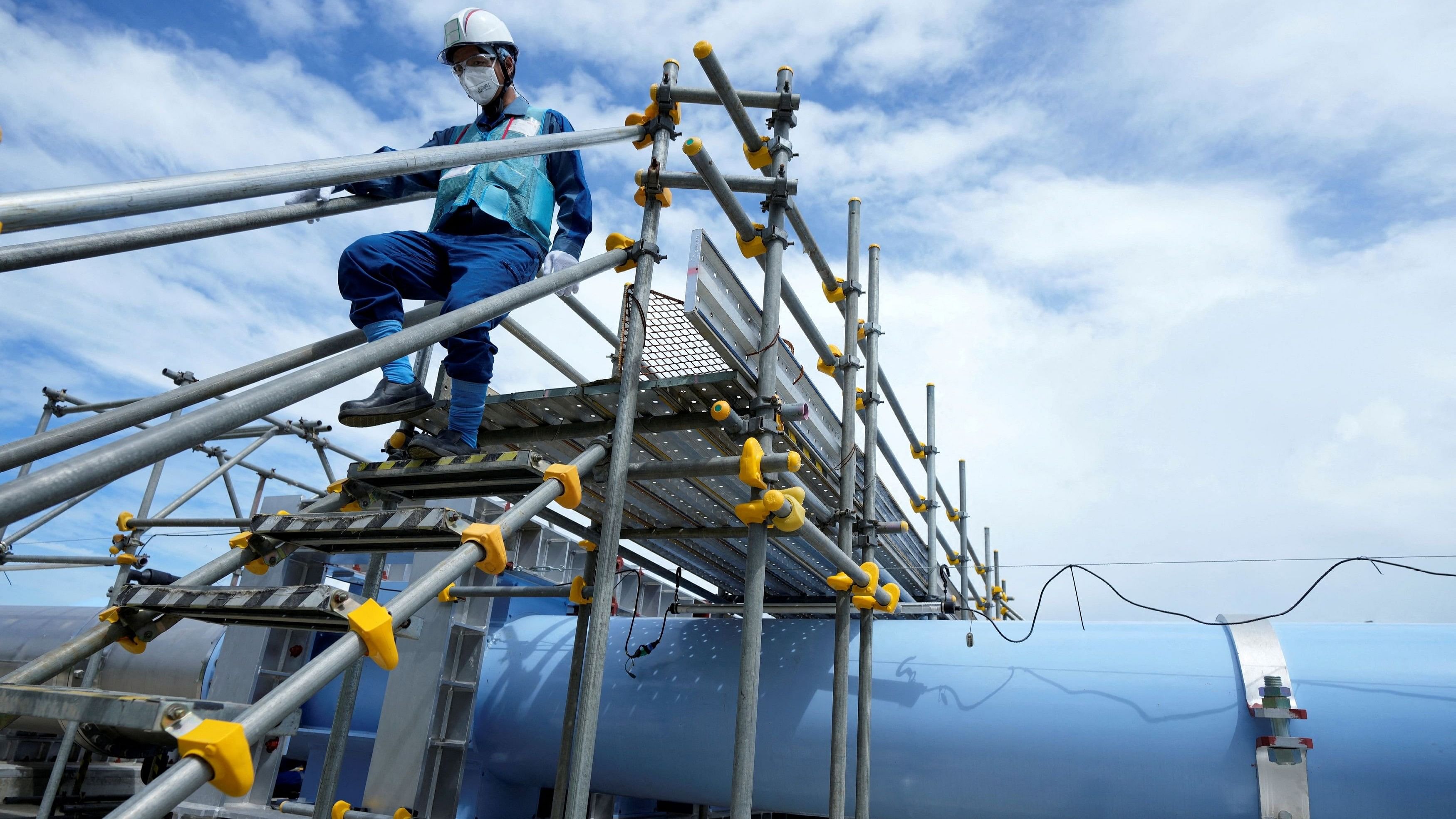
A member of staff walks near a blue pipeline to transport seawater, part of the facility for releasing treated radioactive water to sea from the Fukushima Daiichi nuclear power plant, operated by Tokyo Electric Power Company Holdings, also known as TEPCO, during a treated water dilution and discharge facility tour for foreign media, in Futaba town, northeastern Japan
Reuters
Beijing: China and Japan reached a consensus in August on the discharge of radioactive water from the Fukushima nuclear plant, the Chinese foreign ministry said on Friday, bringing to an end a diplomatic dispute that had rumbled on for over two years.
Beijing called the release "a major nuclear safety issue with cross-border implications," when Tokyo started discharging treated radioactive water from the site in August 2023. It also announced a blanket ban on all aquatic products from Japan.
Japan in turn criticised China for spreading "scientifically unfounded claims," after the International Atomic Energy Agency, the U.N.'s nuclear watchdog, said the plan met international standards and would have a "negligible" impact on people and the environment, a month before Japan released the water.
The two sides agreed on Japan establishing a long-term international monitoring arrangement and allowing stakeholders to conduct independent sampling and monitoring, the ministry said in a statement.
But Mao Ning, a Chinese foreign ministry spokesperson, later said that both countries reaching consensus "does not mean that China will immediately resume imports of Japanese aquatic products," at a regular news conference in Beijing.
"We will carry out technical consultations with the Japanese side and gradually resume the import of Japanese aquatic products," she added.